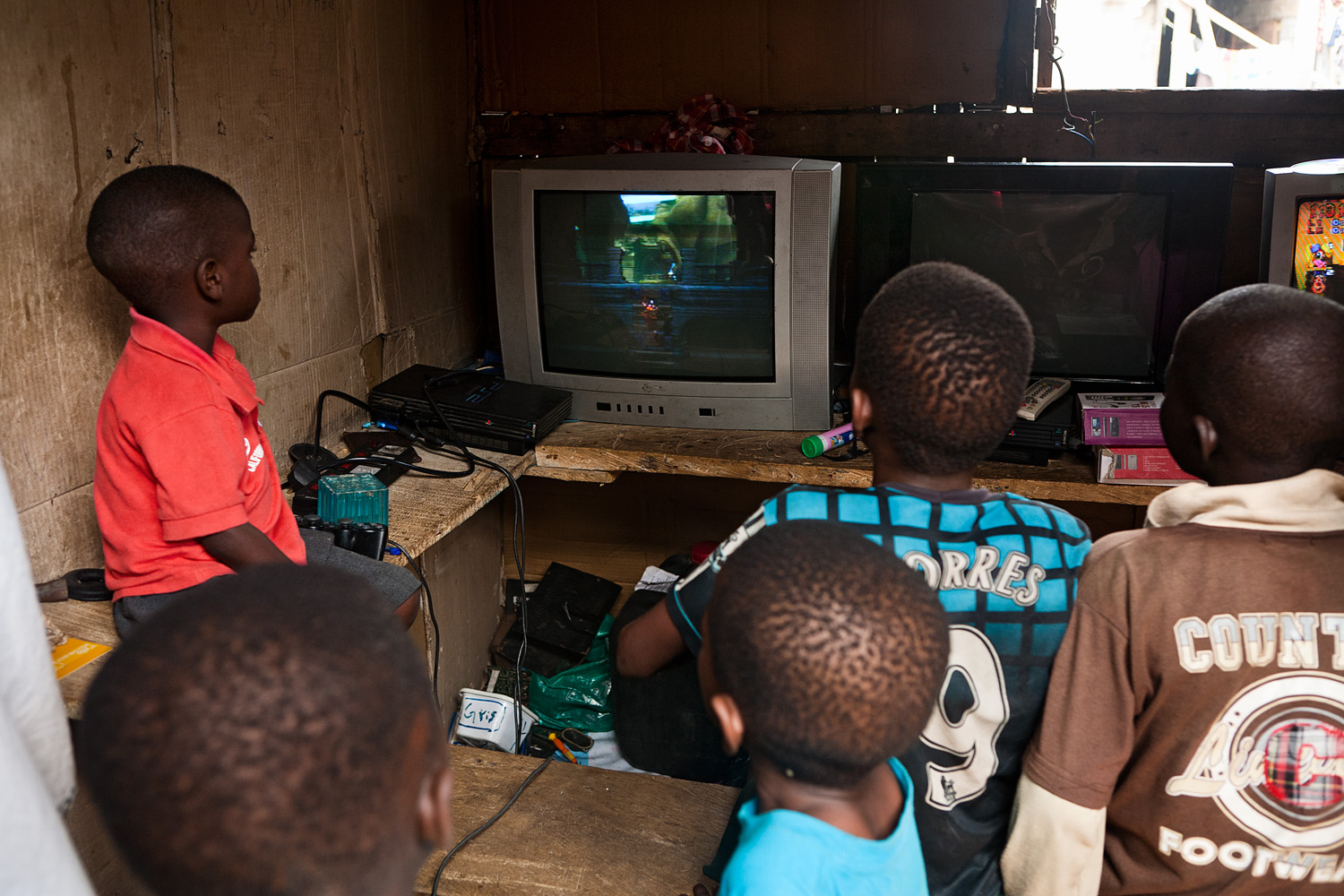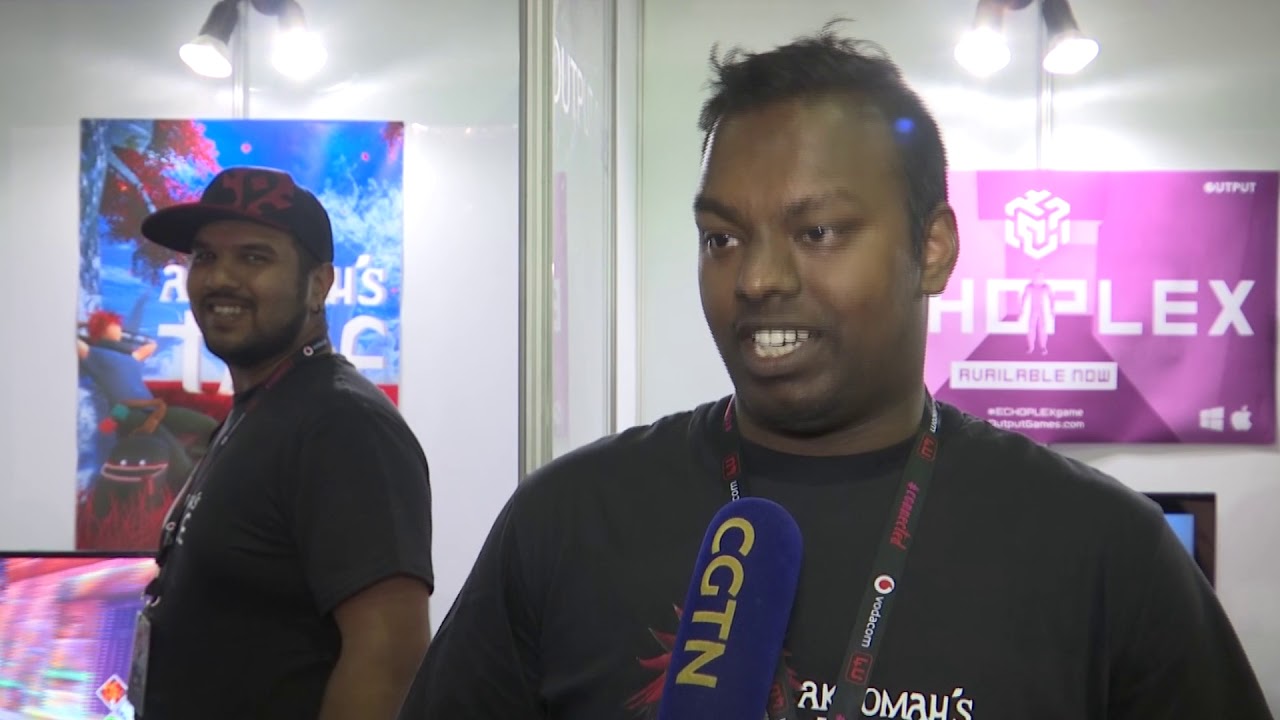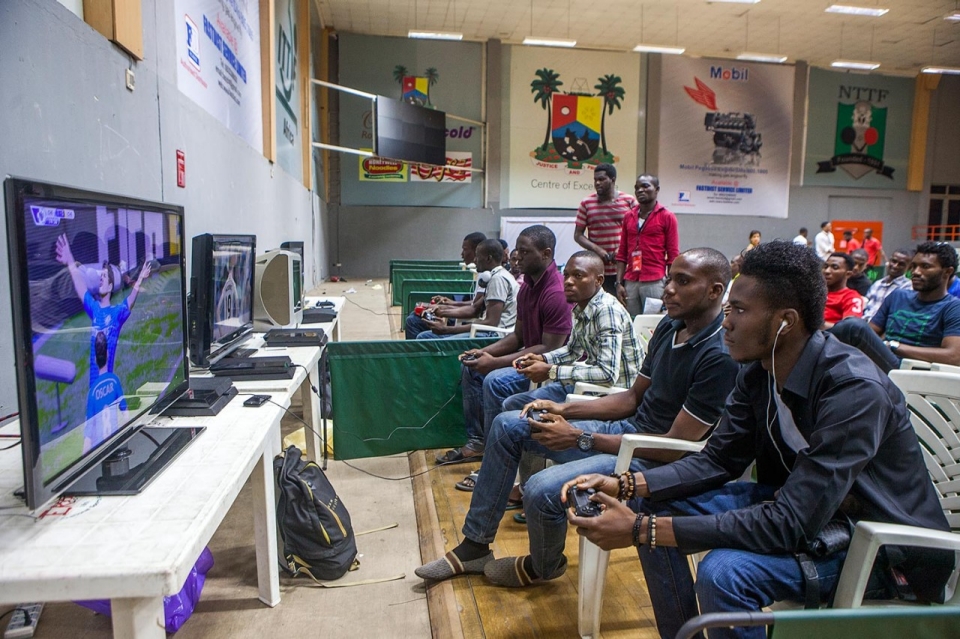The Growing Video Games Industry In Africa
The video games industry in Africa is experiencing remarkable growth, making significant strides both in terms of local development and international recognition. In recent years, the continent has seen a surge in game development studios, esports events, and a rapidly expanding gaming community.
Jun 04, 20230 Shares60 Views

The video games industry in Africais experiencing remarkable growth, making significant strides both in terms of local development and international recognition. In recent years, the continent has seen a surge in game development studios, esports events, and a rapidly expanding gaming community. This article explores the current state of the video games industry in Africa, highlighting the key developments and challenges faced by the region.
A Thriving Local Game Development Scene
Africa's video gamedevelopment scene has witnessed a surge in recent years. With the availability of better technology and increased internet penetration, talented developers from across the continent are crafting unique and culturally rich games. These locally developed games showcase Africa's rich heritage, folklore, and diverse cultures, giving players an immersive experience into the continent's stories.
The rise of game development hubs and incubators in various African countries has also played a crucial role in nurturing homegrown talent. These centers provide essential resources, mentorship, and funding to young developers, encouraging them to explore their creativity and bring their game ideas to life.

Africa: the booming video games' industry
The Gaming Industry's Potential
Africa is one of the world's fastest-growing areas, and the gaming industry is no exception. The continent has a significant gaming population, many of whom are eager for new and exciting gaming experiences.
Africa's gaming market is ready for expansion, and companies that can capitalize on this potential will be very successful.
The continent is a rapidly expanding market in the global gaming industry, mainly to the increasing availability of low-cost mobile devices.
Driving Economic Growth And Job Creation
The video games industry is not only an outlet for creativity but also a significant contributor to Africa's economic growth. As the industry expands, it creates employment opportunities for thousands of young Africans, particularly in the fields of programming, graphic design, animation, sound engineering, and marketing.
Additionally, the rise of video game studios and esports events has attracted international attention and investments, resulting in valuable collaborations between African and foreign gaming companies. This, in turn, fosters cross-cultural exchanges and promotes economic partnerships that benefit the entire industry.
Addressing Infrastructure Challenges
Despite the industry's growth, it is essential to address the infrastructure challenges that still hinder its full potential. Limited access to stable internet connections and reliable electricity can impede online gaming experiences and hinder the distribution of digital games.
To overcome these challenges, governments and private sector players must collaborate to improve digital infrastructureacross the continent. Increased investment in high-speed internet connectivity and sustainable power solutions will not only support the video game industry but also have broader economic and social benefits.
Promoting Inclusivity And Diversity
African video game developers are champions of diversity and inclusivity, striving to create games that represent and cater to various audiences. The inclusion of local languages, characters, and stories not only showcases Africa's diverse heritage but also allows players from different backgrounds to connect with the games on a personal level.
Furthermore, the industry is making strides to bridge the gender gap, actively encouraging women's participation in game development and esports. By promoting diversity, the African gaming community is fostering an inclusive environment that challenges stereotypes and promotes positive representation in the digital space.

South Africa's first gaming expo showcased locally developed games
The Rise Of Esports
Esports has taken the world by storm, and Africa is no exception. The continent has witnessed a surge in esports events, attracting both local and international teams and players. These events not only provide entertainment to fans but also create opportunities for African gamers to compete on a global stage.
The emergence of local esports leagues and tournaments has also led to increased viewership and engagement, drawing sponsorship deals and further boosting the industry's growth. As the esports ecosystem evolves, African players are proving their mettle and competing with the best from around the world.
Overcoming Funding And Monetization Challenges
One of the significant challenges faced by the African gaming industry is the lack of adequate funding and limited monetization opportunities. Many local developers struggle to secure investments and funding for their projects, leading to delays or even abandonment of promising game ideas.
Additionally, the prevalence of piracy and the limited access to digital payment methods pose obstacles to game monetization. Addressing these challenges requires collaborative efforts between governments, financial institutions, and the gaming industry to develop suitable payment solutions and enforce anti-piracy measures.

9 African video games to discover in 2022
International Recognition And Partnerships
African video game developers have not only gained recognition within the continent but are also garnering attention on the global stage. International gaming events and conferences have started to feature African games, exposing them to a wider audience and potential partnerships.
These collaborations open doors for African developers to work with international publishers, distributors, and investors, helping them reach a broader market and establish a global presence.
Africa's Gaming Industry Is Encountering Difficulties.
A number of obstacles, such as a lack of internet infrastructure, restricted access to payment systems, and a lack of backing from governments and policymakers, face the gaming business in Africa.
The majority of African nations lack the required legal and regulatory frameworks to safeguard game developers and publishers against piracy and other types of unlawful distribution, which is another obstacle to the growth of the continent's gaming sector. In addition, the absence of a well-established infrastructure for the gaming business makes it prohibitively expensive to create games for the African market. Despite these obstacles, the gaming sector in Africa is expanding quickly and is predicted to do so in the years to come.
Another barrier is the continued dominance of console gaming in Africa's gaming market. This is because gaming consoles are more reasonably priced in Africa, and there are also more economical gaming services and software options accessible there.
However, there are more games for both PCs and mobile devices than ever before. This is because more and more individuals are acquiring smartphones and PCs, and they are also beginning to delve into the gaming sector.
Opportunities For The African Gaming Industry
The proliferation of mobile devices, better internet connectivity, and the emergence of online gaming platforms are just a few of the opportunities for the gaming business in Africa. The growing number of foreign game publishers and developers that are joining the market to capitalize on the sizable and expanding user base is another factor helping the African gaming sector.
Creating new game genres and content specifically for the African market, as well as expanding mobile gaming into other regions, are further prospects. Additionally, the growing number of investments made by venture capitalists and other investors is helping to fuel the expansion of the African gaming industry.
Harnessing The Power Of Education
Education plays a vital role in nurturing the next generation of African game developers and professionals. Many educational institutions and organizations are now offering specialized courses and workshops in game development, animation, and related fields. These initiatives help equip young talents with the necessary skills and knowledge to thrive in the gaming industry.
Furthermore, collaborations between educational institutions and gaming studios provide students with valuable real-world experiences through internships and practical projects. Such partnerships foster a stronger connection between academia and the industry, promoting innovation and research within the local gaming ecosystem.
The Impact Of Mobile Gaming
The prevalence of mobile devices across Africa has had a significant impact on the video game industry. With a vast majority of the population using smartphones, mobile gaming has become a powerful platform for reaching and engaging a broader audience. Many local developers have embraced mobile gaming as a means to distribute their games and tap into a large market.
In addition to locally developed games, international game developers have also recognized the potential of the African mobile gaming market. As a result, we have seen a surge in mobile game adaptations and localized versions to cater to African players, further boosting the industry's growth.
Social Impact And Health Benefits
Beyond entertainment, video games in Africa have demonstrated the potential for social impact and health benefits. Serious games and gamified learning platforms have been developed to address issues such as education, public health, and environmental awareness. These games leverage the engaging nature of video games to impart knowledge and promote positive behavior change among players.
In the health sector, gamification has been employed to raise awareness about diseases, encourage healthy habits, and facilitate medical training. Such initiatives demonstrate the versatility of video games as a tool for positive change and social development.
The Role Of Government Support
Government support is crucial for the continued growth of the video games industry in Africa. By recognizing the cultural and economic significance of the gaming sector, governments can implement policies and incentives to foster its development. This includes providing funding opportunities for local developers, offering tax breaks for game studios, and supporting the establishment of gaming hubs and events.
Furthermore, regulatory frameworks should be crafted to encourage responsible gaming practices while safeguarding the industry against harmful activities, such as piracy and intellectual property theft.
Africa's Gaming Community And Events
The gaming community in Africa is thriving, fueled by passionate gamers, content creators, and streamers. Online platforms and social media have played a pivotal role in connecting gamers from different countries, facilitating collaborations, and amplifying the African gaming scene's voice.
Local and international gaming events, such as gaming expos, conventions, and esports tournaments, have become a staple of the African gaming calendar. These events not only provide opportunities for players to showcase their skills but also act as platforms for networking and building connections within the industry.
Navigating Cultural Sensitivities
In an industry that transcends borders, developers must navigate cultural sensitivities and avoid perpetuating stereotypes or misrepresentations. Understanding the diverse cultures and traditions within Africa is essential to create games that resonate positively with players from different backgrounds.
Localizing games to reflect regional languages and cultures is an effective way to enhance player engagement and authenticity. Embracing cultural diversity can lead to a deeper connection with the audience and open doors to new markets.

How we made video games in Africa | Eyram Tawiah | TEDxAccra
Overcoming Challenges In Distribution And Marketing
Distribution and marketing remain significant challenges for African game developers. Unlike more established gaming markets, Africa faces logistical and regulatory hurdles that can hinder the distribution of physical copies of games. This makes digital distribution platforms a crucial avenue for reaching players.
However, limited access to digital payment methods poses another challenge for both developers and players. In response to this issue, some developers have explored innovative payment solutions, such as mobile money and blockchain-based transactions, to make their games more accessible.
Effective marketing strategies are essential to create awareness and drive interest in African-made games. Social media platforms, gaming influencers, and gaming expos are becoming vital tools for promoting local games and attracting a broader audience, both within and beyond Africa.
Collaboration And Cross-Continental Partnerships
Collaboration and partnerships are key drivers of growth in the African gaming industry. By pooling resources and expertise, developers and gaming companies can overcome various challenges and expand their reach. Cross-continental collaborations, where African developers work with international counterparts, can lead to mutually beneficial ventures, enabling knowledge exchange and access to larger markets.
Furthermore, African game developers can leverage the power of co-productions and joint ventures with international studios to create games that appeal to a global audience while retaining their unique African identity.
Addressing Intellectual Property Rights
Protecting intellectual property rights is crucial for the sustainability of the gaming industry in Africa. While the industry grows, it becomes increasingly important for developers to safeguard their creations from copyright infringement and piracy. Collaborating with legal experts and regulatory bodies can help establish robust intellectual property protection frameworks that encourage innovation and creativity.
Educating the gaming community and the public about the importance of respecting intellectual property rights is equally vital. This fosters a culture of respect for creators' work and encourages fair compensation for their efforts, thus incentivizing further game development.
Leveraging Virtual And Augmented Reality
Virtual reality (VR) and augmented reality (AR) technologies have the potential to revolutionize the gaming experience. African game developers can embrace these technologies to create immersive and interactive gaming experiences that captivate players. Additionally, VR and AR can find applications in areas beyond gaming, such as education, tourism, and training, further expanding the industry's impact.
As VR and AR technologies become more accessible and affordable, their adoption in the African gaming scene is likely to increase, presenting exciting opportunities for local developers to innovate and stand out on the global stage.
Sustainable Gaming Practices
With the rise of the gaming industry, concerns about environmental sustainability have also emerged. Game developers and stakeholders in the industry must prioritize sustainable practices to minimize the ecological footprint of gaming activities. This includes energy-efficient server infrastructure, responsible disposal of electronic waste, and eco-friendly packaging for physical game copies.
By embracing sustainable practices, the African gaming industry can lead by example and contribute to a more environmentally conscious global gaming ecosystem.
Crypto Games In Africa - Embracing Innovation And Decentralization
The intersection of blockchain technology and gaming has given rise to a new phenomenon known as crypto games, and Africa is not far behind in embracing this innovative trend. These blockchain-based games offer players unique opportunities to own, trade, and monetize in-game assets using cryptocurrencies. As the continent's gaming industry flourishes, the integration of crypto games presents exciting possibilities for developers, players, and investors alike.
With the emergence of platforms like Synthetic Network Token (SNX), which powers synthetic assets on the Ethereum blockchain, African game developers and players can now explore the potential of decentralized finance (DeFi) within gaming. These crypto games bring a new level of ownership and financial empowerment to players, allowing them to truly take control of their virtual assets and experiences. As the popularity of crypto games continues to rise, they have the potential to revolutionize the African gaming landscape, presenting a fascinating blend of technology, gaming, and finance.
The Role Of Markets In Crypto Games In Africa
In the world of crypto games in Africa, the role of markets is paramount. These markets act as hubs for players to buy, sell, and trade their in-game assets using cryptocurrencies. The concept of ownership takes on a whole new dimension in crypto games, where players have complete control over their virtual items, and these items hold real-world value.
As the African gaming community delves into the world of blockchain and decentralized finance, the emergence of robust and secure markets becomes crucial. These markets facilitate a seamless exchange of digital assets, creating a vibrant economy within the gaming ecosystem. Players can trade rare and valuable in-game items, turning their gaming prowess into tangible financial gains.
People Also Ask
What Is The Largest Gaming Market In Africa?
Nigeria is considered the largest gaming market in Africa. With a large population and increasing internet penetration, Nigeria has emerged as a significant player in the continent's gaming industry. The country's gaming community and market size have been steadily growing, attracting the attention of both local and international game developers and investors.
How Popular Are Video Games In Africa?
Video games have been steadily gaining popularity in Africa over the past decade. With the advent of smartphones and improved internet access, more Africans are engaging in gaming activities. The younger generation, in particular, has shown a significant interest in video games as a form of entertainment and social interaction.
Additionally, the rise of esports events and gaming communities has contributed to the growing popularity of video games in Africa. Esports tournaments and gaming expos attract large audiences, both in person and online, further solidifying the industry's appeal.
Which Country Has The Largest Video Game Industry?
Egypt was one of the countries with the largest video game industry in Africa. With a burgeoning game development scene and a sizable population of gamers, Egypt's gaming industry has been making notable strides. The country's local game developers have produced several successful games, showcasing their creativity and potential to make an impact on the global gaming market.
However, it's important to note that the gaming landscape is continually evolving, and other African countries may have also seen significant growth in their gaming industries since my last update. The industry's expansion is a positive trend for the entire continent, as it indicates the increasing interest and opportunities in the African gaming sector.
Conclusion
The video games industry in Africa is witnessing unprecedented growth and recognition, driven by passionate developers, a growing gaming community, and increasing international interest. Through its unique storytelling, inclusivity, and local creativity, the African gaming industry is carving a niche for itself in the global landscape.
To sustain this momentum, stakeholders must continue to invest in infrastructure, promote diversity, and support local talent through funding and mentorship programs. With the right support and strategic partnerships, the African gaming industry has the potential to reach new heights and become a force to be reckoned with in the global video games arena.
Jump to
A Thriving Local Game Development Scene
The Gaming Industry's Potential
Driving Economic Growth And Job Creation
Addressing Infrastructure Challenges
Promoting Inclusivity And Diversity
The Rise Of Esports
Overcoming Funding And Monetization Challenges
International Recognition And Partnerships
Africa's Gaming Industry Is Encountering Difficulties.
Opportunities For The African Gaming Industry
Harnessing The Power Of Education
The Impact Of Mobile Gaming
Social Impact And Health Benefits
The Role Of Government Support
Africa's Gaming Community And Events
Navigating Cultural Sensitivities
Overcoming Challenges In Distribution And Marketing
Collaboration And Cross-Continental Partnerships
Addressing Intellectual Property Rights
Leveraging Virtual And Augmented Reality
Sustainable Gaming Practices
Crypto Games In Africa - Embracing Innovation And Decentralization
The Role Of Markets In Crypto Games In Africa
People Also Ask
Conclusion
Latest Articles
Popular Articles
